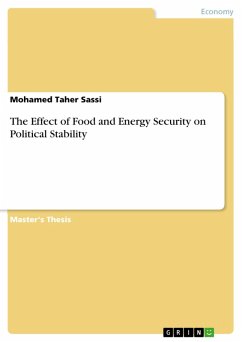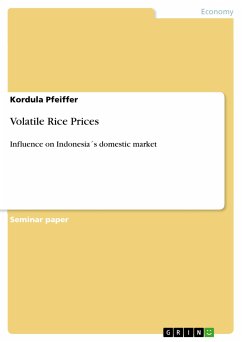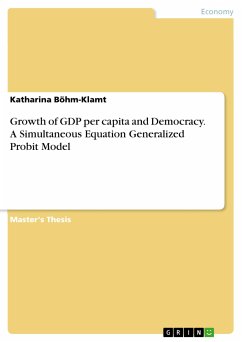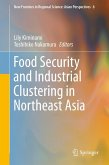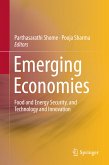Master's Thesis from the year 2020 in the subject Business economics - Economic Policy, grade: 10, University of Marburg (Faculty of Business Administration and Economics Economics & Institutions), language: English, abstract: Since both food security and energy security are countries' strategic objective, this study typically advocates a deep understanding of the concept of political stability to incorporate food and energy security as a new pillar of conflict management based on an empirical understanding of the nexus and its effect. We used food deficit as proxy for food security and energy imports for energy security from the World Bank database. Using the panel fixed effect method on data for more than 150 countries from 2008 to 2016, we identified a highly significant positive effect of economic growth, tourism and high institutional quality on stability. Destabilizing factors were also detected such as corruption and arable land scarcity. The negative effect of food insecurity was illustrated after the introduction of the squared term of food deficit. Energy imports also have a destabilizing effect. These results for the effect of food and energy security effect holds robust to various control of other determinants in our regression. This study calls for more attention to the energy and food strategy within a country. Keeping peace and stability in the world will require development effort and technological exchange between countries in terms of food strategy and renewable energy plans. These measures will boost economic growth and improve the quality of institutions which will help fighting corruption.
Dieser Download kann aus rechtlichen Gründen nur mit Rechnungsadresse in A, B, BG, CY, CZ, D, DK, EW, E, FIN, F, GR, HR, H, IRL, I, LT, L, LR, M, NL, PL, P, R, S, SLO, SK ausgeliefert werden.

